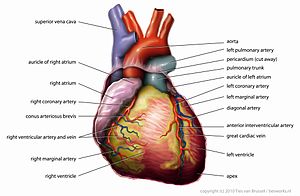New Preventative Health Strategy: Heart Attack Prevention

Heart attacks are one of the leading causes of death in American men and women over 55. While men are more likely to suffer a heart attack than women, fatalities among women heart attack sufferers is far higher, and new research has discovered the possible reason for this. While symptoms of heart attack are often well publicized, with chest pain being the most obvious, research has discovered that fewer women suffer from these classic symptoms than men, making missed diagnosis far more common.
Whether under Medicare or with private surgery insurance, diagnosing and preventing heart attacks is a primary concern for all health care providers, and under the Affordable Care Act, is one of the primary preventative care strategies for Medicare. One in three Medicare patients die due to cardiovascular disease, but the risk is far greater for women than it is for men. Currently, a heart attack is fatal in around 10 percent of male Medicare patients, while for women, fatalities occur in about 14 percent of heart attacks.
New Research
Heart disease is the leading cause of death in all Americans over 55, but the research has found that the risk of death is greater for women, because they don’t always suffer chest pain, often thought of as the primary symptom of a heart attack. Because of this, researchers believe many women are not getting the right type of treatment as the heart attack is not being diagnosed.
Writing in the Journal of the American Medical Association, the researchers say their study, compiled in 1000 hospitals throughout the United States, found 42% of women who suffered a heart attack did not experience any chest pain whatsoever, compared with just 30% of men, and with younger patients, the difference was even more striking.
Despite the difference in symptoms and increase in risk of fatalities, researchers found men still suffer significantly more heart attacks in the United States than women, and cardiovascular disease tends to strike men at a younger age too; the study found that the average age of a male heart attack sufferer was 67, while for women it was 74.
Symptoms
Prompt treatment is the key to heart attack survival in all patients, regardless of sex, so it’s important that people can identify symptoms early. Without the presence of significant chest pain, identifying the symptoms of cardiovascular disease can be extremely difficult. Some patients report only breathlessness, a feeling of being unwell, and a feeling not unlike indigestion. Researchers believe this could mean than tens of thousands of American women may have suffered a heart attack and not sought any treatment, having put down the condition to indigestion, heartburn or summer other minor ailment. However, the likelihood of permanent heart damage and a repeat attack is far greater after such an episode, even if the heart attack symptoms were only mild.
Besides severe chest pain, any of the following symptoms could be indicative of a heart attack:
- A dull ache, heavy feeling or mild discomfort in the chest
- Pain in the back, arm or stomach
- Indigestion that feels either severe or prolonged
- Feelings of light headedness or dizziness
Prevention
An increasing emphasis is being placed on prevention of heart attacks and this new research suggests the importance of the preventative health measures introduced the Affordable Care Act. Medicare now covers more preventive health services aimed at helping people reduce the risk of heart attack. It is hoped, that the Million Hearts Campaign, which Medicare are helping to lead, will prevent a million heart attacks and strokes over the next five years – this could mean the saving of nearly 200,000 American lives.
 Starting from American Heart Month, which began in February, Medicare will pay for an annual face-to-face visit so that Medicare beneficiaries can discuss ways to prevent cardiovascular disease with their care provider. During this visit, care providers will screen patients for high blood pressure, whilst also providing advice on healthy eating and ways to change lifestyle habits that could reduce the risk of cardiovascular disease in the future. While smokers, people with diabetes and those suffering obesity – the leading causes of cardiovascular disease in the United States – are also now entitled to claim for counseling services under Medicare since the Affordable Care Act.
Starting from American Heart Month, which began in February, Medicare will pay for an annual face-to-face visit so that Medicare beneficiaries can discuss ways to prevent cardiovascular disease with their care provider. During this visit, care providers will screen patients for high blood pressure, whilst also providing advice on healthy eating and ways to change lifestyle habits that could reduce the risk of cardiovascular disease in the future. While smokers, people with diabetes and those suffering obesity – the leading causes of cardiovascular disease in the United States – are also now entitled to claim for counseling services under Medicare since the Affordable Care Act.
Now that we’ve discussed this exciting new preventative health strategy for optimal well-being, head on over to our Insights page to learn about other novel innovations in the healthcare space.
